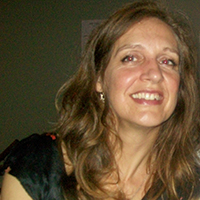Much has been written about Mindfulness meditation recently.
Some reports praise the benefits of the practise and how it can really help to reduce stress. Others state that it needs to be approached with caution—an interesting point.
For me, one of the issues that we need to be careful of in meditation is being hard on ourselves. There are lots of programs—both in-person and online—that encourage a regular meditation practise. This is a good thing as we can benefit from this on so many levels. However, the problem arises when this practise starts to become a ‘whipping stick.’ For example, maybe in our meditation practise we notice that our mind has strayed and has lost its focus so we chastise ourselves. Or maybe our morning meditation session has become forced and willfull. Or maybe our practise is creating guilty feelings about not ‘doing’ enough.
Often we approach our meditation—or even our Yoga practise—from a place of achieving and goal orientation.
There is a part of us (ego-mind) that is determined to achieve something so that we can become somebody else. It is never satisfied with how we are or where we are right now.
This way of being that permeates our daily lives can easily get transferred to our yoga mat or meditation seat. The worrying aspect is that our practise can create the same results as in our daily lives: anxiety, stress and harmful thinking towards ourselves.
When we come to a meditation practise we have to let go of this goal orientation. A more compassionate and loving way of being is to come to our yoga mat or meditation stool with a sense of wonder and enquiry—like a beginner. Ask ourselves how are we today? How busy is my mind?
This is where we are right now and it’s not good or bad, right or wrong. It’s just how we are and that’s okay.
Don’t try to empty the mind—this is nigh on impossible. We can allow thoughts to be there but keep our attention on the focus (e.g., the breath) and bring ourself back if we notice that our attention has wondered.
It’s so important to do this from a place of kindness and compassion.
Over time, the fruits of a regular practise can give us greater internal head space—even if there are still lots of thoughts—and an awareness that can help us to ride the challenges of life.
Let’s not have our practise become a ‘whipping stick.’ Let it come from a place of love and compassion.
Love elephant and want to go steady?
Sign up for our (curated) daily and weekly newsletters!
~
Apprentice Editor: Kim Haas / Editor: Renée Picard







Read 0 comments and reply